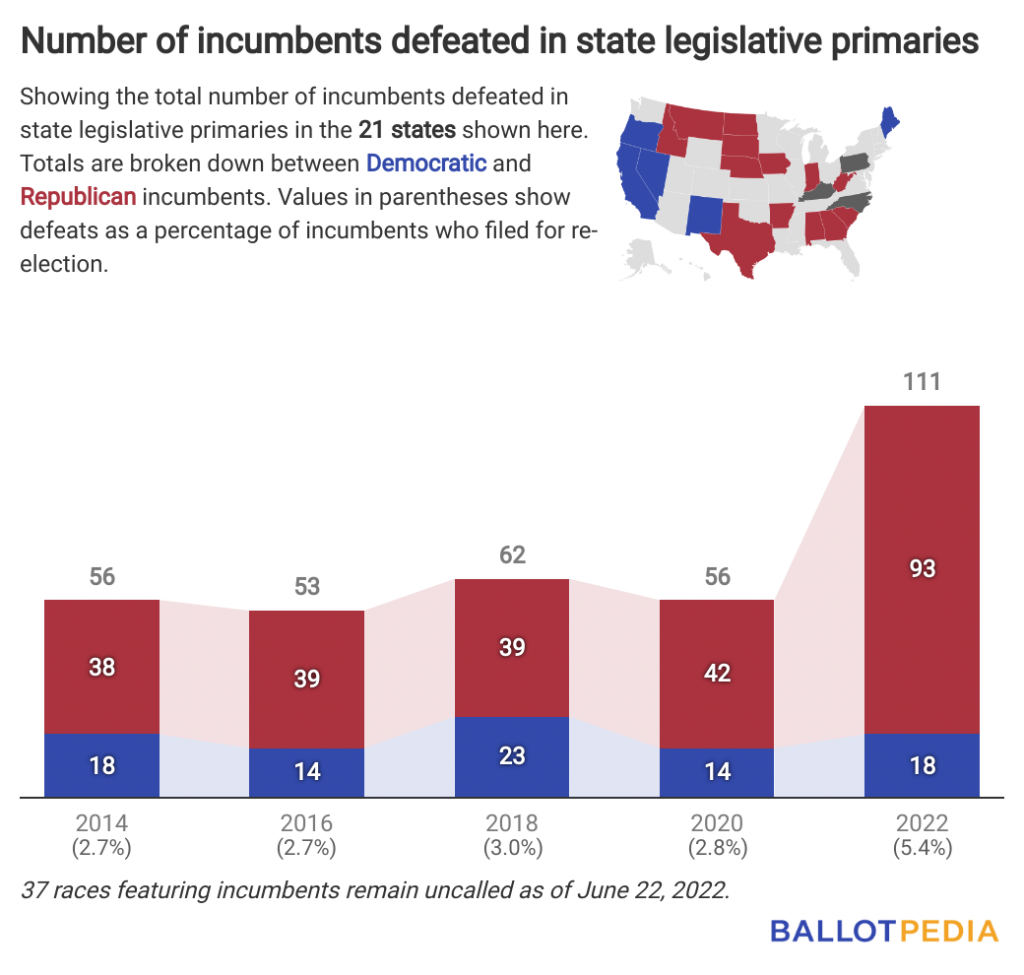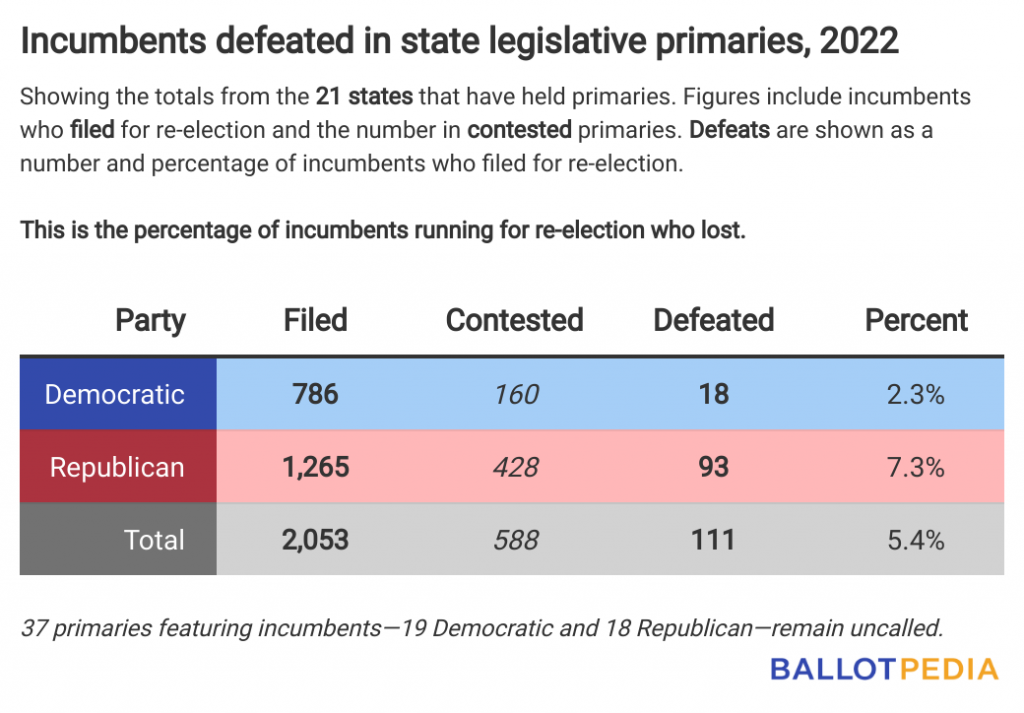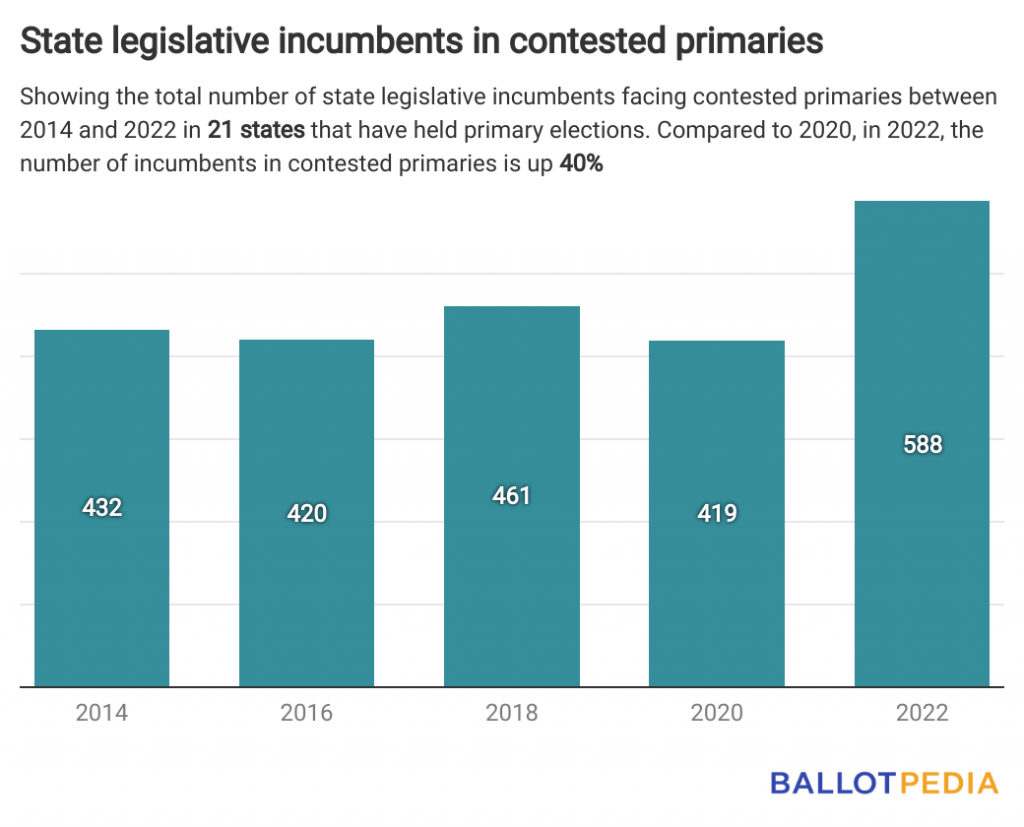So far this year, 111 state legislative incumbents—18 Democrats and 93 Republicans—have lost to primary challengers.
Across the 21 states that have held primaries, 5.4% of incumbents running for re-election have lost, an elevated level of incumbent losses compared to previous cycles.

In addition to earlier primaries, these totals include initial results from primary runoffs in Alabama, Arkansas, and Georgia. So far, four incumbents have lost in those states:
- Three Republicans in Arkansas; and,
- One Republican in Georgia.
No incumbents have lost in Alabama's primary runoffs so far.
This year, Republican incumbents have lost at a higher rate than Democrats. Of the 1,265 Republican incumbents who filed for re-election, 93 (7.3%) have lost to primary challengers. For Democrats, 18 of the 786 who filed for re-election (2.3%) have lost.

But fewer Democratic incumbents are facing primary challengers than their Republican counterparts. Around 20% of Democratic incumbents who filed for re-election faced contested primaries compared to 34% for Republicans.
In these 21 states, 2,053 incumbents filed for re-election, 588 of whom (29%) faced primary challengers.

Twenty-seven of these 111 incumbent defeats (24%) were guaranteed due to redistricting. When states redraw legislative lines, incumbents can oftentimes end up in a new district with other incumbents leading to incumbent versus incumbent primaries or general elections. Since, in these races, there are more incumbents running than nominations or seats available, at least one incumbent must always lose.
Of the 21 states that have held primaries so far, five have Democratic trifectas, 13 have Republican trifectas, and three have divided governments with Democrats controlling the governorship and Republicans controlling both legislative chambers. Across these 21 states, there are 2,650 seats up for election, 43% of the nationwide total.
The figures for 2022 will likely increase. There are currently 37 uncalled primaries featuring incumbents: 19 Democratic and 18 Republican.


